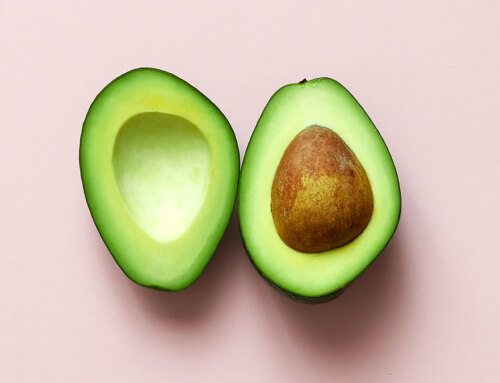Did you know that what you eat not only influences your body’s energy levels and physical health but also plays a significant role in your mood and mental well-being? We all experienced “stress stomach pain” at least once in our life, but the connection between our gut and brain goes much further and is truly fascinating. Recent neurobiological research on gut-brain crosstalk has revealed that this communication not only ensures the proper functioning of digestion but also has multiple effects on motivation and higher cognitive functions, including intuitive decision-making. Also, disruptions in this system have been linked to various mood disorders like anxiety and depression.
Contents
The Gut-Brain Axis: How it Works?
The gut-brain axis is a term for a two-way communication between your gut and brain. It involves the central nervous system and enteric nervous system in your gastrointestinal tract. We know that neurons, cells that tell our body how to behave, are most numerous in our brain (100 billion of them!), but interestingly, our gut has the second-highest concentration and contains 500 million neurons. It’s no wonder that the enteric nervous system, which regulates our gut, is often called the body’s “second brain”.
Unfortunately, everyone experiences stress at some point in their life. With lifetime incidence rates of 14% and 12%, anxiety and depressive disorders are common mental health conditions globally. Research has shown a compelling connection between these two disorders and the microbes living in our gastrointestinal system. Individuals experiencing depression and anxiety often have distinct gut microbiome profiles compared to those without these conditions, confirming an undeniable link between what we consume and our mental health.
The Mood-Boosting Microbiota
Within your gut is a diverse community of microorganisms known as the gut microbiota. These friendly bacteria play a crucial role in your digestion and immune system, but they also profoundly impact your mood. Research has shown that a balanced and diverse gut microbiota is associated with better mental health outcomes.
Certain bacteria in your gut produce neurotransmitters like serotonin, often called the “feel-good” hormone. A deficiency in serotonin leads to mood disorders, and interestingly, around 90% of serotonin production happens in the gut. By maintaining a healthy gut microbiome through proper nutrition, you can support optimal serotonin levels and uplift your mood.
Can Gut-Brain Connection Affect Your Skin?
Yes! Your gut plays a crucial role in absorbing the essential nutrients your skin needs to stay healthy and glowing. When your gut isn’t in balance, it can lead to inflammation, potentially causing skin issues like acne or redness.
Stress is closely linked to both the gut and the skin. When you’re stressed, your brain releases hormones that can disrupt your gut’s balance and lead to inflammation, which in turn can trigger skin issues. Managing stress through relaxation techniques like meditation and deep breathing can positively impact your skin.
An unbalanced gut microbiota may modify the production of various neurotransmitters, affecting the functioning of the skin barrier and immune system. If the gut issues are ignored, the skin problems or mood/cognitive issues won’t fully resolve. In other words, gut issues are often the root cause of skin- and brain-related problems.
Nutrition Tips for a Happy Gut and Mind
Fiber-Rich Foods: Incorporate fiber-rich foods like whole grains, fruits, and vegetables into your diet. Fiber acts as a prebiotic, nourishing beneficial gut bacteria and promoting their growth.
Probiotics: Introduce probiotic-rich foods such as yogurt, kefir, and kimchi. The benefits of fermented foods are numerous; they contain live beneficial bacteria that help maintain a healthy gut microbiome.
Omega-3 Fatty Acids: Include sources of omega-3 fatty acids, such as fatty fish (salmon, mackerel), flaxseeds, and walnuts. Omega-3s have anti-inflammatory properties that positively impact both gut and brain health.
Limit Processed Foods: Reduce your intake of highly processed foods and excess sugars. These can disrupt the balance of your gut microbiota and contribute to inflammation. Also, they cause blood sugars to rise and fall rapidly, which leads to low energy and irritability.
Hydration: Drink plenty of water throughout the day to support digestion and the movement of nutrients through your body.
Food Variety: If you don’t have a variety of foods in your diet, getting the essential nutrients can be more challenging. Eating food rich in zinc, iron, B vitamins, vitamin D, omega-3 fatty acids, and magnesium will boost your energy and improve your mood.
Don’t Skip Meals: When you miss a meal, your body begins to increase the production of cortisol, the body’s main stress hormone, which controls your mood, motivation, and fear – leaving you feeling stressed and hangry. Also, skipping a meal will decrease your blood sugar and leave you feeling weak and tired. Contrary to misguided beliefs, skipping a meal and hoping for a quick fix to lose weight can actually hinder your progress. It slows down your metabolism, making weight loss more challenging and potentially even leading to weight gain.
Mindful Eating for Mood Enhancement
In addition to making nutritious choices, practicing mindful eating can further enhance the gut-brain connection. Take time to savor your meals, eat slowly, and pay attention to the flavors, textures, and sensations of each bite. This practice can help activate the parasympathetic nervous system, promoting better digestion and nutrient absorption.
Remember that everyone’s body is unique and that finding the right nutritional balance for your gut and mind might take some experimentation. By nurturing your gut microbiota through thoughtful food choices, you’re not only benefiting your physical health but also creating a foundation for a positive mood and improved mental well-being.





















Leave A Comment